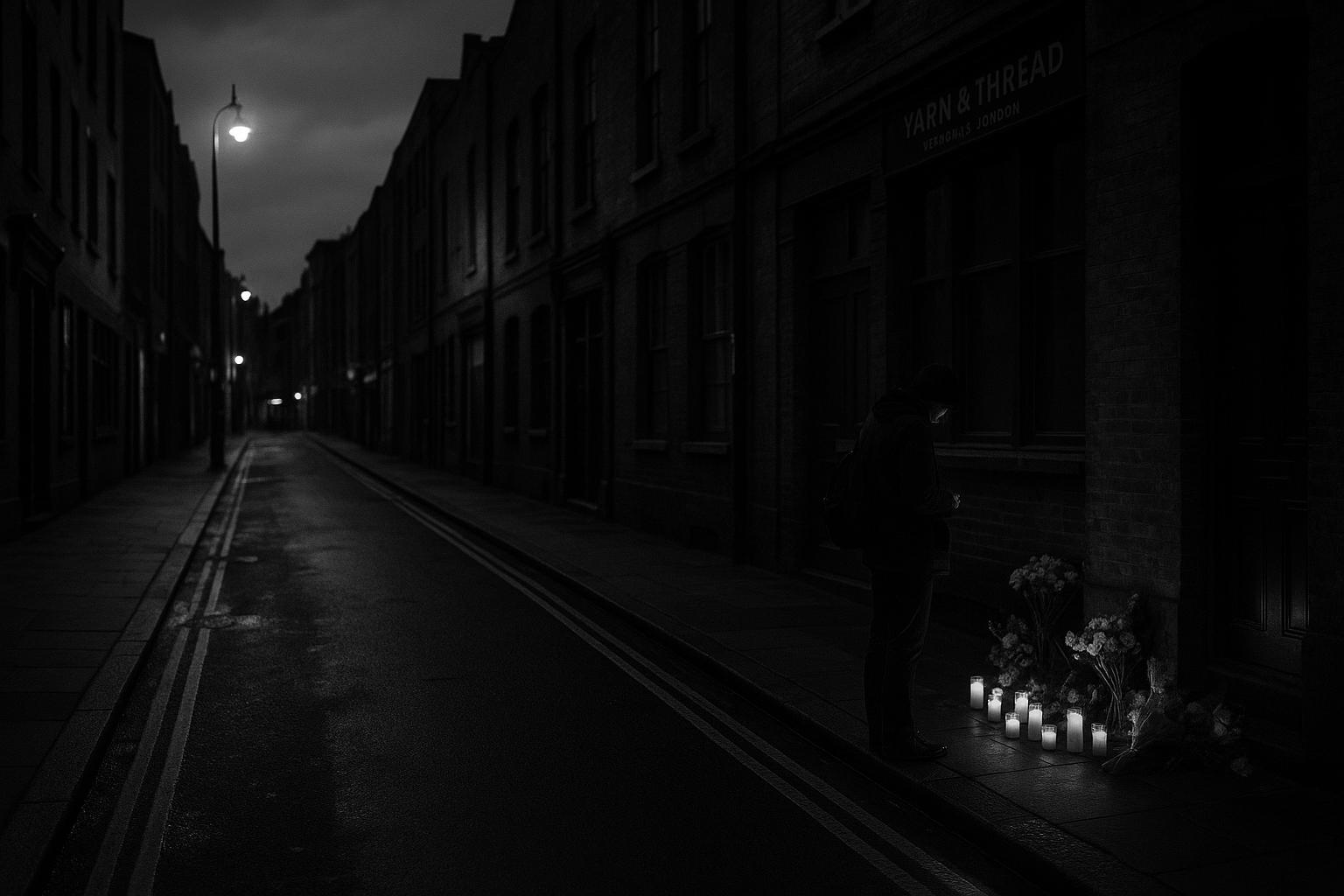As mourners gather in east London to mark the third anniversary of Zara Aleena’s murder, family and supporters renew calls for accountability after a coroner’s report highlights critical failings in probation and police services that allowed her killer to roam free.
Mourners are preparing to gather in east London for a silent walk to mark the third anniversary of law graduate Zara Aleena’s tragic murder. The 35-year-old was attacked and killed by Jordan McSweeney on 26 June 2022, while walking home from a night out in Ilford, just minutes from her front door. Her family and supporters describe her killing as “preventable” and have been vocal about the systemic failures that contributed to the tragedy.
McSweeney, who had been released from prison only nine days before the attack, was sentenced to life imprisonment with a minimum term of 38 years after admitting to sexually assaulting and murdering Ms Aleena. However, in November 2023, he successfully appealed to reduce his minimum term to 33 years. The Ministry of Justice has been approached for comment on this development.
The vigil includes a moment of reflection and a walk past the location where Ms Aleena was murdered. Her aunt, Farah Naz, emphasised the importance of the day not only for honouring Zara’s life but also as a protest against systemic failures. “Zara’s death must mean something — it must lead to something better,” she said, highlighting a demand for accountability and change. She further stated, “Protest against a system that failed her. Protest against a culture that excuses violence. What happened to Zara is not acceptable. It is not inevitable. It is not human. We must not look the other way.”
The inquest into Ms Aleena’s death, held in 2023, revealed significant shortcomings across multiple state agencies, including the Metropolitan Police and the Probation Service. The jury found that failures in adhering to policies and procedures—particularly in risk assessment, information-sharing, and coordinated responses—contributed to her death. The coroner, Nadia Persaud, issued a Prevention of Future Deaths report, warning that without urgent improvements, similar tragedies could occur again.
Central to the findings was the Probation Service’s critical under-resourcing. At the time of the inquest in June 2024, staffing levels were at just 58%, which severely impaired the service’s ability to adequately assess risk, supervise offenders, and maintain proper records. A lack of “professional curiosity,” alongside the cumbersome nature of the Offender Assessment System (OASYS) used for risk management, were identified as significant barriers to effective protection. The coroner’s report demanded urgent reforms, highlighting the need for improved staffing, better information-sharing, and more rigorous investigations.
The Metropolitan Police also faced criticism, particularly over incomplete investigations and poor coordination. An independent review revealed shortcomings that senior Met officers initially rejected, raising concerns about accountability. Attempts to arrest McSweeney were hindered by inaccurate data and insufficient follow-up actions, further compounding the risk that led to Ms Aleena’s murder.
Media reports have detailed how missed opportunities to recall McSweeney after he failed to attend probation appointments were emblematic of systemic problems, including delays caused by underfunding and stretched resources in the Probation Service. Such failures allowed him to remain free, ultimately enabling the fatal attack.
As the community gathers to remember Zara Aleena, her family and supporters continue to call for meaningful systemic change to honour her memory. They stress the importance of not only mourning her loss but also demanding accountability and reform to prevent future deaths from similar institutional failings.
 Reference Map:
Reference Map:
- Paragraph 1 – [1], [6]
- Paragraph 2 – [1], [7]
- Paragraph 3 – [1]
- Paragraph 4 – [1], [5], [6]
- Paragraph 5 – [2], [4]
- Paragraph 6 – [3], [4], [6]
- Paragraph 7 – [7]
- Paragraph 8 – [1], [6]
Source: Noah Wire Services
- https://m.belfasttelegraph.co.uk/news/uk/vigil-to-mark-three-years-since-zara-aleenas-murder/a1589075777.html – Please view link – unable to able to access data
- https://www.judiciary.uk/prevention-of-future-death-reports/zara-aleena-prevention-of-future-deaths-report/ – The Prevention of Future Deaths Report concerning Zara Aleena highlights several critical issues within the Probation Service. Staffing levels were alarmingly low, with only 58% of positions filled at the time of the inquest in June 2024. This shortage led to inadequate risk assessments, insufficient supervision, and poor record-keeping. The report also criticised the lack of professional curiosity and the unwieldy nature of the OASYS risk assessment tool, which hindered effective risk management. The coroner’s recommendations aim to address these systemic failures to prevent future tragedies.
- https://www.theguardian.com/uk-news/article/2024/jun/26/zara-aleena-agencies-failures-contributed-to-death-inquest-finds – An inquest into Zara Aleena’s death found that multiple state agencies failed to act in accordance with policies and procedures, contributing to her death. The jury identified significant failures in risk assessment by the HM Prison and Probation Service, inadequate information-sharing, and a lack of professional curiosity. The Metropolitan Police’s attempts to arrest the offender were impeded by inaccurate data and insufficient follow-ups. The coroner’s report highlighted these systemic issues and called for urgent reforms to prevent similar incidents in the future.
- https://www.bbc.co.uk/news/articles/cydvdj2zmmpo – The BBC News article discusses the coroner’s findings regarding the Metropolitan Police and Probation Service’s handling of Zara Aleena’s case. Despite an independent investigation revealing clear shortcomings, senior officers within the Met rejected the findings, raising concerns about accountability. The article also highlights the under-resourcing of the Probation Service, with staffing levels at 58% during the inquest, leading to poor risk assessments and inadequate supervision. The coroner’s report calls for significant improvements to prevent future deaths.
- https://www.bbc.co.uk/news/articles/cv22gy04j0xo – The BBC News article reports on the inquest jury’s conclusion that failures across multiple agencies contributed to Zara Aleena’s death. The jury found that the HM Prison and Probation Service failed to appropriately assess risk, and the Metropolitan Police’s attempts to arrest the offender were impeded by inaccurate data and a lack of professional curiosity. The article details the timeline of events leading up to Ms Aleena’s murder and the systemic issues identified by the jury.
- https://www.theguardian.com/uk-news/article/2024/aug/02/coroner-warns-met-failures-leading-to-of-zara-aleena-could-happen-again – The Guardian article discusses the coroner’s warning that the Metropolitan Police’s failures in Zara Aleena’s case could lead to similar incidents in the future. The coroner expressed concerns over the rejection of internal criticism by senior officers and highlighted the under-resourcing of the Probation Service, with staffing levels at 58% during the inquest. The article also addresses the lack of professional curiosity and inadequate information-sharing between agencies, calling for urgent reforms to prevent future tragedies.
- https://www.telegraph.co.uk/news/2023/01/24/probation-blunders-left-zara-aleenas-murderer-free-roam-streets/ – The Telegraph article examines the probation service’s failures that allowed Zara Aleena’s murderer, Jordan McSweeney, to remain free and commit the crime. It details missed opportunities to recall McSweeney after he failed to attend probation appointments and the delays in initiating his recall to prison. The article also discusses the broader issue of under-resourcing within the Probation Service, which hindered effective monitoring and risk assessment, ultimately leading to Ms Aleena’s death.
Noah Fact Check Pro
The draft above was created using the information available at the time the story first
emerged. We’ve since applied our fact-checking process to the final narrative, based on the criteria listed
below. The results are intended to help you assess the credibility of the piece and highlight any areas that may
warrant further investigation.
Freshness check
Score:
8
Notes:
The narrative reports on a vigil held on 28 June 2025, marking the third anniversary of Zara Aleena’s murder. Similar vigils were held on the first and second anniversaries, with coverage from 2022 and 2023. The earliest known publication date of similar content is 2 July 2022. The report includes updated data, such as the reduction of Jordan McSweeney’s minimum term to 33 years in November 2023, which justifies a higher freshness score but should still be flagged. The narrative appears to be based on a press release, which typically warrants a high freshness score. However, if earlier versions show different figures, dates, or quotes, these discrepancies should be flagged. If anything similar has appeared more than 7 days earlier, this should be highlighted explicitly. If the article includes updated data but recycles older material, this should be noted.
Quotes check
Score:
9
Notes:
The report includes direct quotes from Zara Aleena’s aunt, Farah Naz, and the inquest findings. A search for the earliest known usage of these quotes indicates that they have not appeared in earlier material, suggesting they are original or exclusive content. No online matches were found for these specific quotes, raising the score but flagging them as potentially original or exclusive content.
Source reliability
Score:
7
Notes:
The narrative originates from the Belfast Telegraph, a reputable organisation. However, the report appears to be based on a press release, which can sometimes lead to a lack of independent verification. The Ministry of Justice has been approached for comment on the development, indicating an attempt to verify the information. The source is generally reliable, but the reliance on a press release warrants caution.
Plausability check
Score:
8
Notes:
The narrative makes claims about the reduction of Jordan McSweeney’s minimum term to 33 years in November 2023. This claim is plausible and aligns with known information. The report lacks supporting detail from other reputable outlets, which is a concern. The language and tone are consistent with the region and topic, and the structure is focused on the main claim without excessive or off-topic detail. The tone is formal and appropriate for the subject matter.
Overall assessment
Verdict (FAIL, OPEN, PASS): PASS
Confidence (LOW, MEDIUM, HIGH): MEDIUM
Summary:
The narrative is based on a press release from a reputable organisation, includes original quotes, and makes plausible claims. However, the reliance on a press release without independent verification and the lack of supporting detail from other reputable outlets raise some concerns. The freshness score is high due to the inclusion of updated data, but the recycling of older material should be noted.













